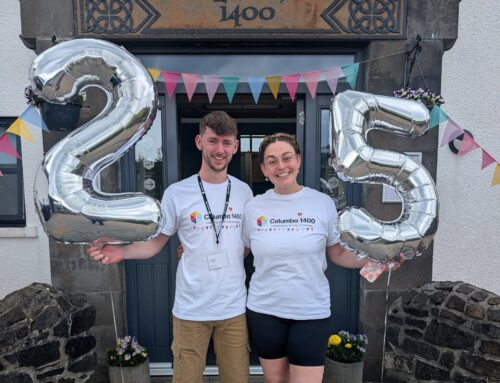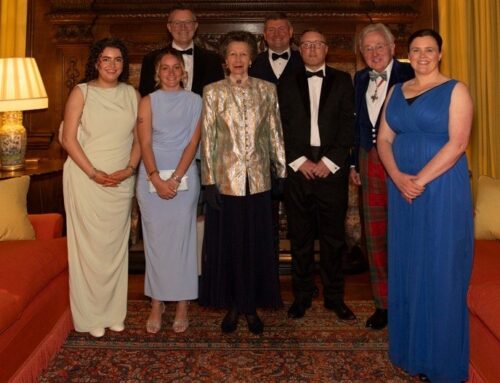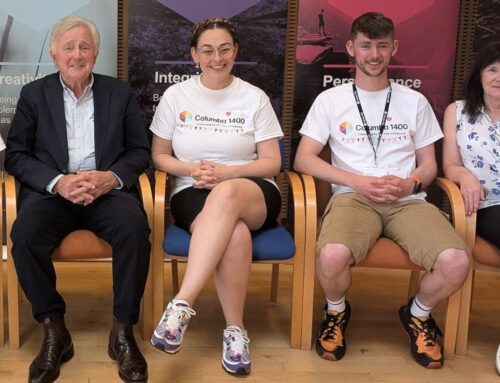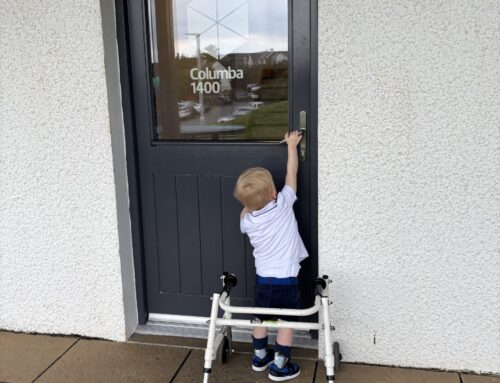We welcome young people from all over Scotland to our Young People’s Leadership Academies. To ensure they have the best experience possible it’s important that our team understand how best to support them if certain topics come up in their conversations. So, each month the team focus on a different topic for their continued professional development. In July they are looking at and thinking about sex and relationships. Here our wonderful facilitator Matilda focuses on consent and how we can talk to young people about what this means.

Sex and relationships – consent
Having a romantic relationship is something that has the potential to bring a lot of joy and pleasure to a person’s life. It is also something that can be very challenging and confusing.
An aspect of romantic relationships that is often, but not always, significant is sex, or sexual activity. When engaging in sexual activities it is important to be safe, using protection against unwanted pregnancy and sexually transmittable infections. Find more information about this here and here.
Keeping yourself and others safe
When engaging in sexual activity it is very important to keep yourself and your partner physically and emotionally safe. This is regardless of where you are at in your sexual journey: from just curious and wanting to know about these things, to wanting to perhaps kiss and touch someone else, to being old enough and emotionally ready and eager to have sex. In order to keep yourself and others safe you need to know about a concept called consent.
Consent
Consent essentially means to agree to something. When sexual activity involves two people, this means that both of those people should be in agreement and feeling happy and eager to engage in these activities. Sexual activity is only fun and healthy if everyone who is engaged in it feels comfortable and safe.
The first thing to know about consent is that a person needs to be in a position to give consent. This means that they should be in a mental and physical position to choose whether or not to take part in a sexual activity. If they are for example, asleep, very drunk or in a state of high emotional distress this means they are not in a position to give consent. Age also comes into this, and the legal age of consent is 16 in the UK.
How to get consent
A good way of obtaining consent is to simply ask: “Is this okay?” or “Would you like to do this?”. However, consent is a continuous conversation throughout the activity rather than a one-off tick box. It is okay to withdraw consent and say no at any point during sexual activity. Sometimes it can be difficult for people to say no, so it’s important when you’re engaging in sexual activity, to be paying attention to the other person’s body language and stop whatever it is you’re doing if they no longer seem into it.
Brook, a UK charity that seeks to educate and provide advice about sex and relationships puts it really well: “Practising consent means paying attention to your partner’s actions, words and sounds every time you have a sexual encounter”.
Talking to the person you are attracted to about consent is a really great idea. Together you can decide how the two of you are going to communicate about consent.
Generally, having consent in mind means being dedicated to assuring whoever you are engaging with is having a really great time and will mean that you enjoy healthier and more pleasurable sexual interactions.
The law and consent
“Engaging in a sexual act without the person’s consent is sexual violence and a criminal offence.” (Brook). Age also comes into this, and as mentioned above the legal age of consent is 16 in the UK. So, consent is not only about having healthy sexual interactions and being respectful – it is a legal requirement!
To sum up
Knowing about and having a think about consent is something that is valuable to every single person who wants to and is ready to engage in sexual activity. It is ultimately something positive that will enable those who practice it to have healthier and more positive sexual encounters.
Remember that communication is key, and that it’s always better to check in and talk about something than to not. We can do our best to read each other’s body language but ultimately, we are human and sometimes we get things wrong. If you have any doubts – use your words to check that you and your partner are okay. At the end of the day this is what’s most important.
Signposting
Below are some websites that provide helpful and useful information regarding sex and relationships.
Brook is a UK charity supporting people with their sexual health and wellbeing. It’s a good place to read and learn about sex and relationships.
Fumble is a free, digital sex education resource for the 21st century, aimed at young people. They recognise the challenges that social media and the internet bring to sex and relationships and strive to address these issues, as well as offline ones.
The Mix is a charity that provide help and support via their website, phone, or social media. They are primarily aimed at young people under the age of 25, and tackle every aspect of life, not just sex and relationships. Their services are free, confidential, and anonymous.
If you have been a victim of sexual violence and you don’t know what to do or who to turn to, Rape Crisis Scotland runs a national helpline with support and information for anyone affected by sexual violence open daily from 5pm – midnight, 365 days a year.
Reference list
Health for Teens (2020) The Law and Consenting to Sex: Just the Facts [online]. Available here [accessed 28 June 2023]
The Mix (2022) Sexual Consent [online]. Available here [accessed 28 June, 2023]
Brook (2023) Sex and Content [online] Available here [accessed 28 June, 2023]
Brook (2023a) How to give and get consent [online]. Available here [accessed 28 June, 2023]





